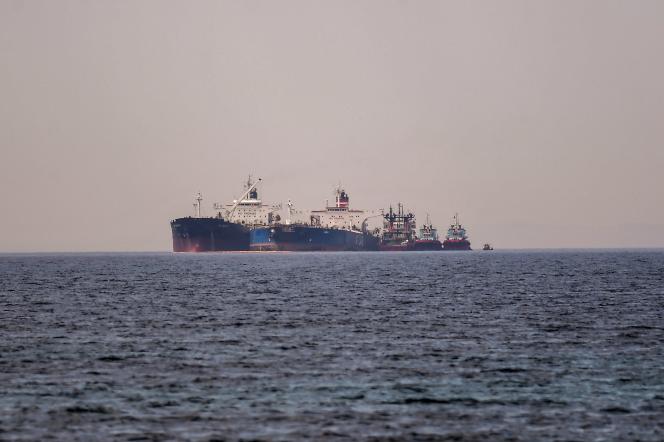A strange meeting in the middle of the North Atlantic. On May 26, 300 miles from the small island of Madeira, the Aframax Zhen-1 class supertanker, flying the flag of Palau, approaches its big brother, the Lauren-II, a 300 meter long monster, capable to contain in its holds more than 300,000 tons of oil. The Zhen-1 empties its contents, nearly 100,000 tonnes of crude from the Russian Urals, and leaves. The Lauren-II is probably waiting, off the African coast, for another shipment of the same order. Such transhipments in the open sea are not common, assures the Bloomberg agency, which tracks the movements of these giants of the seas. But neither are current events.
Oil tankers, which transport 60% of the oil produced in the world, are key players in the black gold trade and its geopolitics. Since Europe decided to gradually cut its imports of Russian crude, the country has been trying to redirect its exports at full speed towards greedy and less fussy countries such as China and India. But the maritime exit points for Russian oil are located either to the north, in the Baltic Sea and that of Barents, in the Siberian Arctic, or on the side of the Black Sea, the main outlet for the historical production zone in the Urals. and the Caspian.
Underinvestment
The main destination of Russian oil until now has been Europe. And more than two-thirds of exports travel by sea. By deciding to cut Russian oil imports by ship by the end of the year, the European Union will deprive Moscow of nine-tenths of its closest market. It will only be left with pipeline supplies from Hungary, the Czech Republic and Slovakia. Hence the need to launch its boats on other oceans, sometimes at the cost of naval acrobatics, such as that practiced off Madeira.
Luckily for Russia, India is still thirsty and has smelled a windfall. It is rapidly converting its refineries to accommodate oil from the Urals and its imports are steadily rising: 20% in April and twice as much in May. But if it is so welcoming, it is also because it has its price. To sell its goods, Moscow is selling off. As a result, its overall production is up, but its revenues are down, by 5% at the end of May, according to Bloomberg.
The country is therefore not benefiting for the moment from the rise in prices, while it is still unable to produce the quantity authorized by OPEC. He is not the only one in this case. According to experts in the field, only Saudi Arabia, the United Arab Emirates and Iraq have the means to increase their production. The others, and in particular Nigeria and Angola, will benefit from the price increases, but do not have the capacity to be mobilized to produce more, a consequence of the underinvestment of the lean years. Too bad for them, because demand is exploding at the moment, especially with the holiday season in the United States, this “driving season” so greedy in gasoline.
Consequently, the price of oil will remain permanently high. This is why Europe has no choice. It must urgently reconnect with a real oil-saving policy, particularly in transport, as it was after the 1973 crisis. The boats will pass offshore.


















